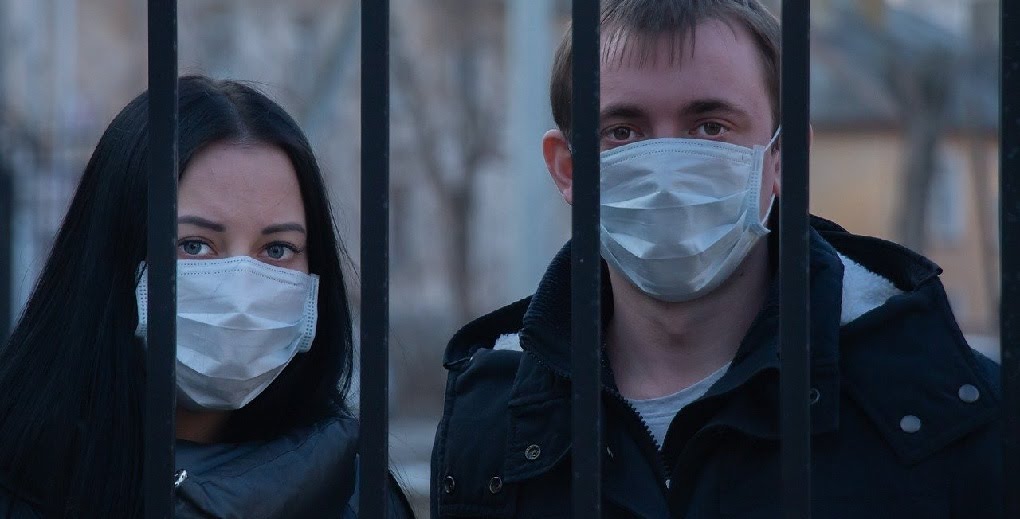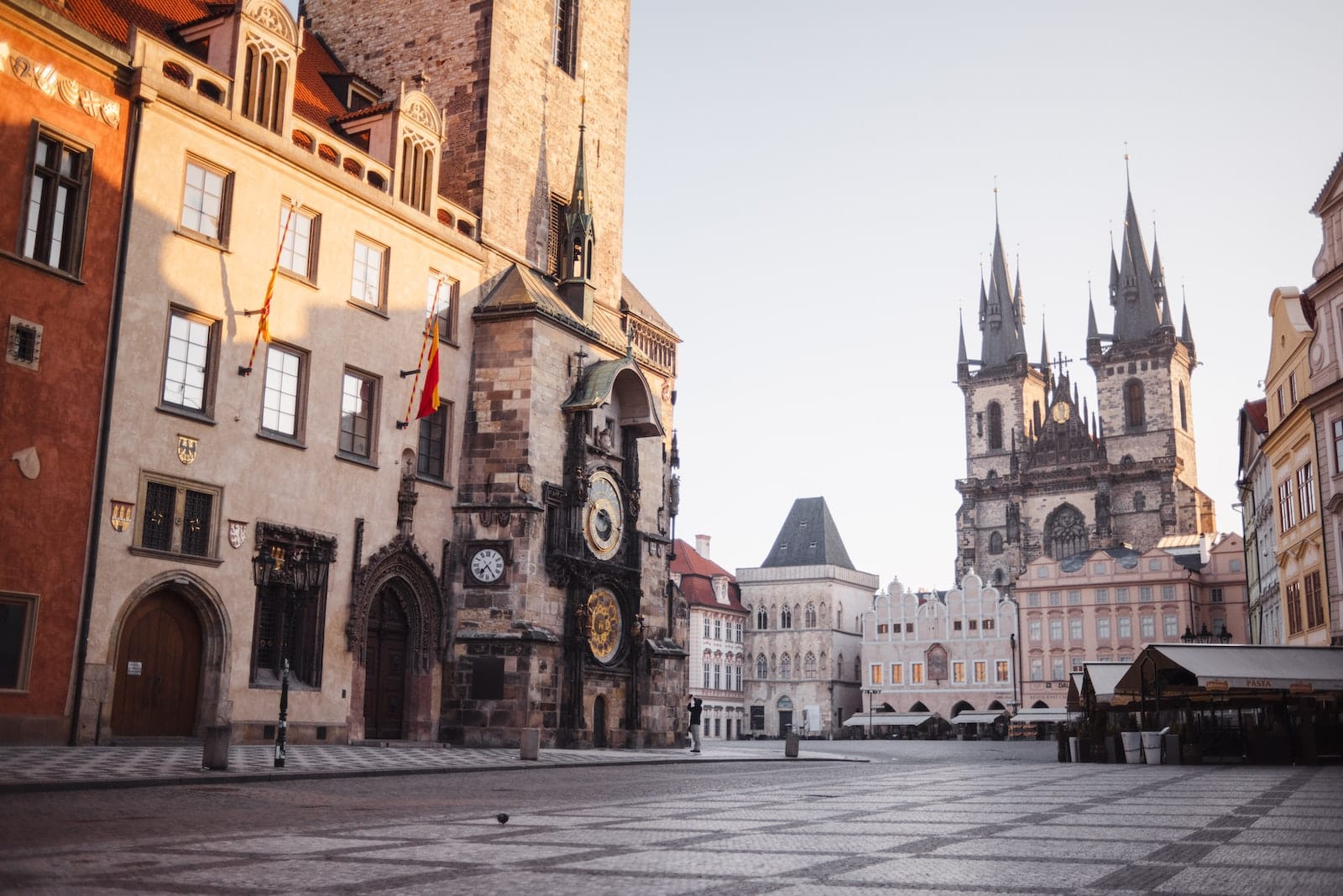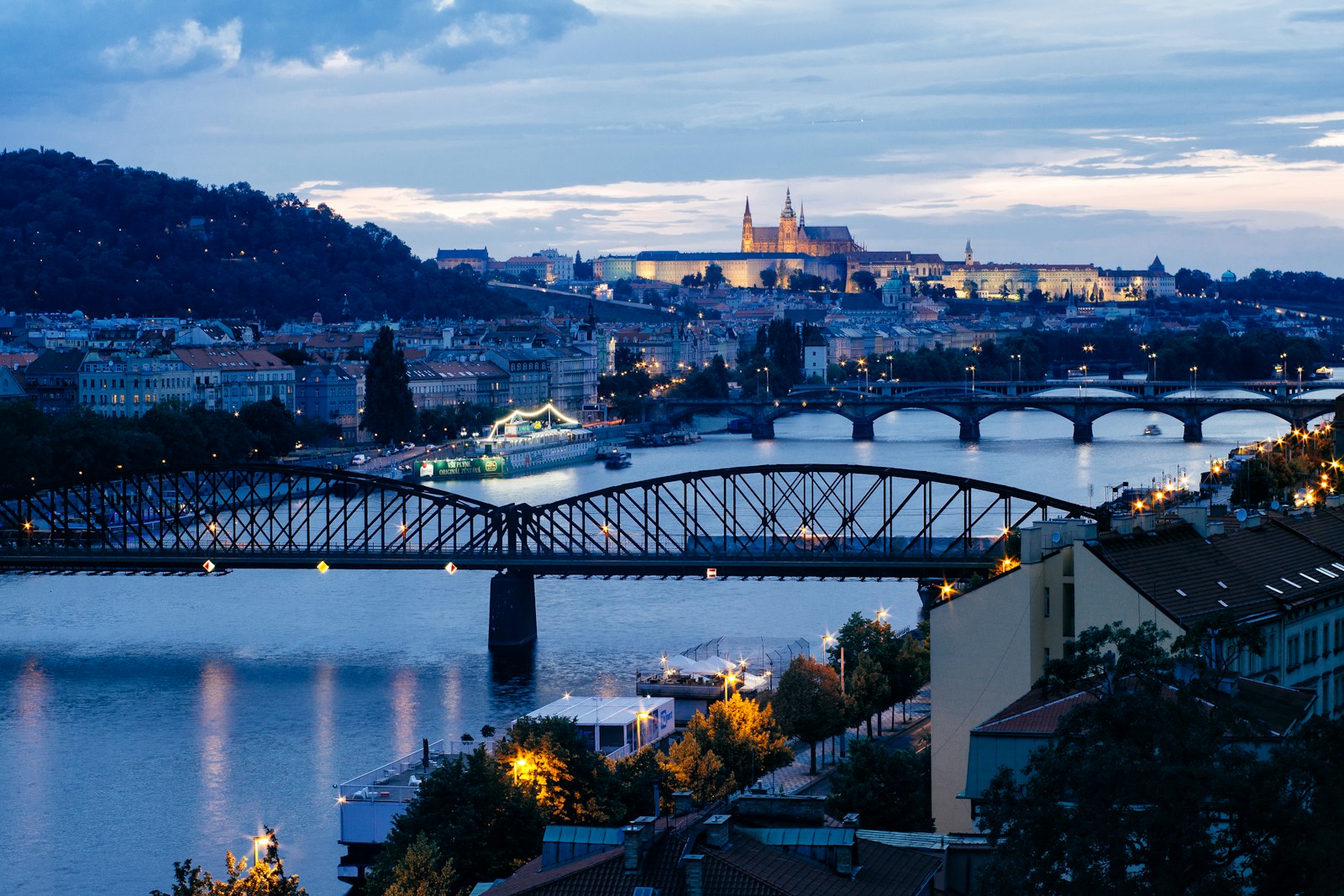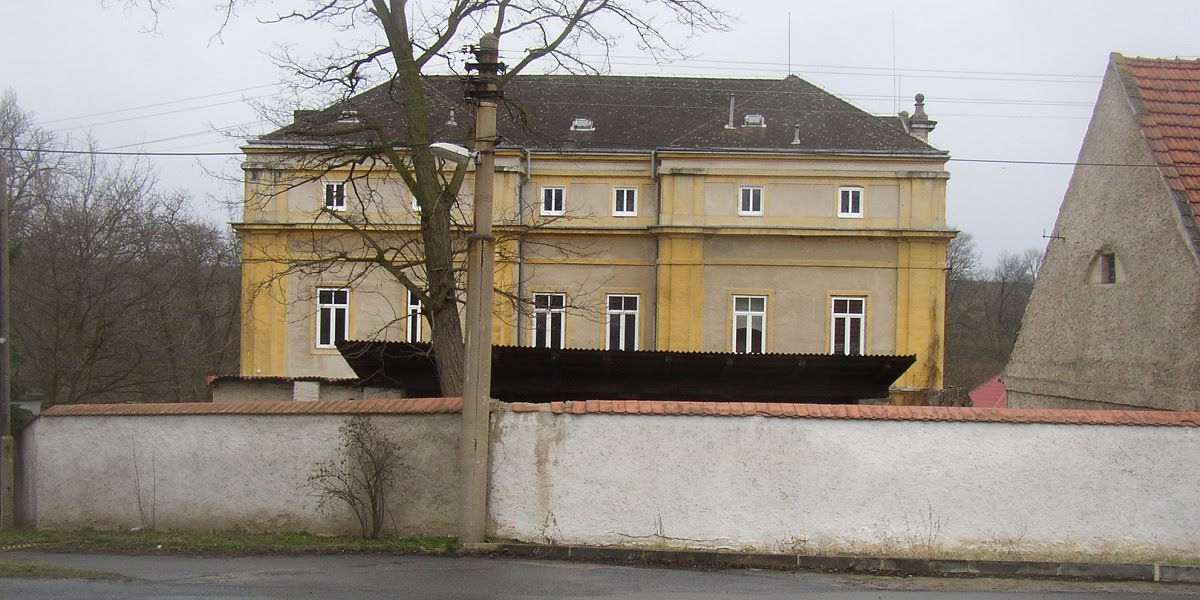The real estate situation in Prague and the Czech Republic in light of the coronavirus outbreak – this page is continuously updated.

COVID-19 Update in Prague as of 20/07/2021 (previous updates below…)
We reviewed data from the Land Registry regarding apartments and houses sold over the past two years. After analyzing specific districts in Prague, we found that owners of centrally located apartments, often used for tourist rentals, have not begun selling them despite COVID-19. In Malá Strana, Staré Město, and Nové Město, fewer apartments were sold last year than in 2019, even when there were no movement restrictions due to COVID.
The only central district where sales increased is Josefov. However, only 14 apartments were sold there last year, compared to 11 the year before. The highest number of apartments were sold in Libeň and Žižkov. The largest increase was recorded in Dolní Měcholupy, where five times more properties were sold than in 2019 — a total of 250 apartments and 28 houses.
COVID-19 Update in Prague as of 18/04/2022
Last week, the Czech Republic lifted all COVID-19 restrictions. Masks are now only required in medical facilities.
COVID-19 Update in Prague as of 01/03/2021
Due to rising infection rates in the Czech Republic, the country is entering a lockdown today. So what is allowed and what is not?
- Travel between city districts is allowed only for workers with employer approval. No permit is needed for commuting within your residential district.
- Leaving the residential area for medical reasons is allowed only in urgent cases. No permit is needed if the facility is within the same district.
- Shopping is allowed only within the residential district.
Shops and services that will remain open:
- Grocery stores, pharmacies, opticians
- Newsstands
- Gardening stores
- Household goods stores
- Gas stations
- Pick-up points for online purchases
- Car wash stands
- Computer and phone repair services
- Taxi and towing services
What is closed?
- Visiting family members outside your district is prohibited, except for providing essential services, urgent care, or necessary accompaniment (e.g., to a medical appointment or work).
- All schools, kindergartens, and informal activities for children will be closed.
- Walking dogs at night is allowed only within 500 meters of the home.
- Nature walks are allowed only within the residential district.
- Children’s clothing and shoe stores will be closed.
Additionally,
- Participation in weddings is allowed only within the residential district.
- Walking and jogging are only allowed between 5:00 AM and 9:00 PM.
COVID-19 Update in Prague as of 22/12/2020
The Third Wave in the Czech Republic
On Friday, December 18, the Czech Republic returned to level 4. Christmas vacation was extended by two days for schoolchildren. Various restrictions were imposed: gatherings of more than six people were prohibited in both indoor and outdoor settings; a nightly curfew was imposed from 11:00 PM to 5:00 AM; shops were allowed to open with a capacity of one customer per 15 m². Sports grounds, museums, galleries, exhibitions, fairs, zoos, botanical gardens, swimming pools, gyms, and wellness centers were closed, while ski resorts, hair salons, spas, and independent beauty salons (not part of wellness complexes) were allowed to operate. In addition, hotels, casinos, and restaurants were closed (takeaway permitted until 11:00 PM), and the sale of alcoholic beverages at stands was banned.
COVID-19 Vaccinations
None of the COVID-19 vaccines are currently approved in the European Union. According to the law, such vaccines must receive approval from the European Commission based on expert assessment by the European Medicines Agency (EMA). The agency has received applications for two vaccines (Pfizer and Moderna) and is expected to issue an opinion on the Pfizer vaccine by the end of 2020.
Real Estate During This Period
Despite the negative impact on other economic sectors, the Czech real estate market continues to grow and property prices keep rising. For example, second-hand apartment prices in Prague rose by 18% in 2020. Real estate agencies report high interest from Czech citizens in purchasing property, alongside investors. The reasons include: low interest rates encouraging property investment, relaxed mortgage conditions by the Czech National Bank, and the elimination of the real estate acquisition tax.
However, rental prices have dropped (e.g., in Prague by 2.6% over the past six months), with average rent now standing at CZK 300 per m². This could increase property supply if investors struggle to meet mortgage payments.
In fact, only in Q3 2020 did the effects of the first wave on the real estate market in the Czech Republic become clear, and only now are emerging trends visible—likely to continue in the coming months. For example: a preference for renting over buying, decreased property sales, price stagnation (or even decline) in Prague in favor of peripheral areas. This may indicate that Prague residents are avoiding suburban areas, which could lead to long-term housing price drops in major cities.
COVID-19 Update in Prague as of 5/11/2020
*(Previous updates below…)
The Second Wave in the Czech Republic
Due to a sharp rise in infections, the Czech government ordered the closure of shops and businesses and restricted free movement except for work, business, family outings, shopping for essentials, and the like. Shops must close by 8:00 PM and are likely to remain closed on Sundays. A nighttime curfew has been in effect for about a week, and citizens are not allowed outdoors after 9:00 PM. Czechs returning from red-listed countries must undergo COVID-19 testing and complete a health declaration form.
Real Estate
Despite COVID’s economic impact, mortgages in the Czech Republic are breaking records. Data from the first three quarters of 2020 suggest that this year the mortgage market will surpass even 2016 and 2017. The growth is mainly driven by low interest rates, which have been declining for six consecutive months. Currently, the rate is close to 2%, the lowest since September 2017. Czech experts predict further rate drops in the near future.
Vladimír Staňura, chief analyst of the Czech Banking Association, says another factor boosting mortgage volumes is the continued rise in property values, and the perception of real estate as a safer investment than stocks.
COVID-19 Update in Prague as of 17/9/2020
*(Previous updates below…)
As of today, there are 17,500 confirmed COVID-19 cases in the Czech Republic, with an average of 2,000 new infections daily. It is now fairly clear that the country is entering a second wave, like many other nations. In parts of Europe, the Czech Republic has been added to the red list, and Czech citizens face entry restrictions in those countries.
Since the beginning of September, wearing masks is mandatory in all indoor public spaces and on public transport, and large gatherings are prohibited. Currently, no lockdown is being discussed, but if cases rise, that may change…
Real Estate in the Czech Republic
In April, a bill to abolish the real estate acquisition tax in the Czech Republic was submitted, and in recent days it passed into law. There is now no tax on real estate purchases in the country. Now is a great time to invest!
Despite analysts’ expectations of a property price drop, it’s now clear that real estate prices have not generally declined during the COVID crisis. The market has shown remarkable stability. Major developers report normal sales rates, so they have not needed to lower prices of new projects. We expect price increases to resume after the crisis ends.
Rental Market
In August, with students returning to the city, we clearly saw increased demand for rentals. We’re happy to report that half the apartments vacated due to COVID have returned to the rental market, even if rent reductions were needed, coordinated with landlords.
Since the beginning of September, due to the rise in cases, there has been a slight slowdown in rental activity. However, we hope the trend continues to improve and that we return to full occupancy in the coming months, as before the pandemic.

COVID-19 Update in Prague as of 04/08/2020
*(Previous updates below…)
As of today, there are no significant public restrictions in the Czech Republic, except for mandatory masks on the metro. COVID case numbers are rising again, but moderately. There is no current concern about a second wave in Prague.
As known, the pandemic affected many markets, but the Czech real estate sector was only minimally impacted. Prices for apartments, land, and houses continue to rise.
According to the Prague Daily Monitor, in the first four months of 2020, apartment prices in Prague and surrounding cities rose by about 13% compared to the previous year, bringing average prices to around CZK 65,400 per m². Unsurprisingly, the most expensive apartments are located in Prague 1 (CZK 159,800 per m²), while the cheapest are in Prague 10. “The growth rate of apartment prices slowed in Q2 across the Czech Republic, although prices rose in all regions except Karlovy Vary, where prices stabilized. Smaller apartments in the 2+1 and 2+KK categories became more expensive,” said Petr Němeček, head of real estate at Hypoteční Bank.
Long- and Short-Term Rentals in Prague
In terms of rentals, we experienced a 15–20% drop due to Airbnb apartments entering the long-term rental market. However, we expect a quick recovery as short-term rentals begin to return in Prague.
Comprehensive review of the Prague rental market from April to July 2020.
COVID-19 Update in Prague as of 02/07/2020
*(Previous updates below…)
As of July 1, most COVID-19 restrictions have been officially lifted in the Czech Republic, and fewer and fewer people are seen wearing masks. Currently, face masks are no longer required in shops or indoor spaces (except in metro stations).
Yesterday, a “COVID farewell party” (which some say was premature) was held on Charles Bridge, featuring a 500-meter-long table with a bring-your-own setup where everyone shared homemade food, alcoholic drinks, and delicacies.
Borders with EU countries defined as green have reopened, and cross-border movement has resumed. We’re also beginning to see early signs of tourism returning to Prague.
COVID-19 Update in Prague as of 07/06/2020
*(Previous updates further down the page…)
In the first days of June 2020, fewer than 40 new daily COVID-19 cases were recorded in the Czech Republic.
Aside from a peak of 111 new cases on May 18, the number of new COVID-19 cases remained below 100 throughout May. At the height of the crisis in early April, 200–300 new daily cases were recorded. In total, just under half a million COVID-19 tests have been performed in the Czech Republic to date, with around 9,000 confirmed cases since the outbreak began in mid-March. About 2,500 people remain ill, while the rest have recovered.
Over the past month, the daily increase in new cases has remained stable, suggesting that the Czech Republic’s reopening plan for shops, restaurants, and other facilities has not significantly affected the infection rate.
As of May 25, almost all businesses in the Czech Republic have reopened. However, social distancing is still in place, and there is a requirement to wear face masks in indoor spaces, including shops and restaurants. The requirement to wear masks outdoors ended last Monday, but half of Czechs surveyed said they would continue wearing them.
Borders with Slovakia, Hungary, Austria, and Germany have reopened. Travelers from these countries are no longer required to quarantine.
Mortgage Payment Deferral
We have recently received formal confirmation from the bank we work with that it is possible to request a deferral of mortgage payments due to the COVID-19 crisis. The bank offers two deferral options:
Option A – Full freeze of principal and interest for 3 months:
A complete freeze on mortgage payments (principal and interest) for a period of 3 months.
Option B – 12-month deferral of principal payments:
Only the principal payments are deferred (interest will still be paid) for up to 12 months.
- It is important to note that the application must be submitted at least 10 days before the mortgage payment is due.
- Contrary to rumors, this deferral will not affect the customer’s credit rating or their payment reliability profile.
- There are no service or processing fees for this option for our clients.
- If you have multiple properties/mortgages and wish to defer all of them, a separate request must be submitted for each property/mortgage.
COVID-19 Update in Prague as of 18/3/2020
As of March 18, 2020, there were over 450 confirmed COVID-19 cases in the Czech Republic. The Czech government imposed a soft lockdown on all residents. Anyone going out to buy food or using public transportation is required to wear a face mask. All restaurants, malls, and entertainment venues are closed. Anything not considered essential service has been shut down. Gatherings of more than 10 people are prohibited, and many workplaces have switched to working from home as much as possible.
Property Sales
The market in the Czech Republic (as in much of the world) is currently frozen. Everyone is waiting to see what will happen, and only ongoing transactions are being completed. Most banks have also sent their employees to work from home, resulting in significant delays in mortgage approvals.
Mortgage Payment Freeze
Another point to note is that Czech banks are willing to approve a three-month mortgage payment freeze without penalties due to the situation.
Rental Properties
The chances of finding a tenant for a vacant apartment these days are low. Those trying to move are encountering many difficulties (e.g., lack of moving services), and this market is also frozen. On the other hand, tenants whose leases are ending now have requested one- to two-month extensions until the situation becomes clearer.
Rental Forecast for the Near Future
In the near term, we do not expect a drop in demand for regular long-term rentals in Prague and Plzeň, except perhaps a decrease in demand for luxury apartments. In tourist apartments (mainly in Prague’s Old Town) rented to travel companies for the long term, we are already facing challenges. The tourism market is frozen, companies cannot rent these apartments to tourists at all, and we have already received requests for contract cancellations, suspensions, and deferrals of rent payments until the situation becomes clearer.
Due to the crisis, we expect short-term difficulties in rent payments, especially among self-employed tenants and those sent on unpaid leave by their employers.
And There’s Also a Positive Side…
Alongside the difficult situation the world is facing, there is a different side to the story. The city of Prague is emptier of tourists than ever before, and these dramatic scenes are causing some Prague residents—who had previously complained about over-tourism—to miss the crowds of visitors that had greatly contributed to the city’s economy.





